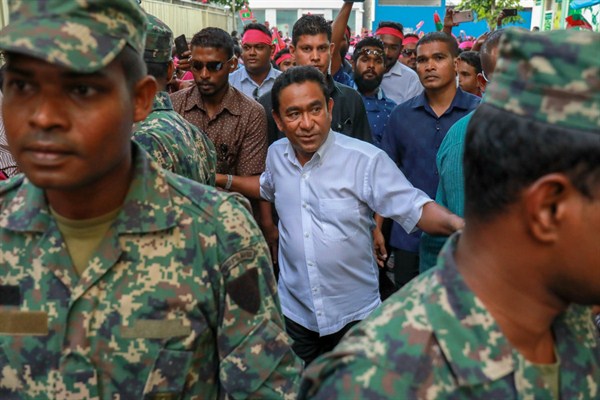The Maldives, a country known far more as a honeymoon hotspot in the Indian Ocean than as a hub of political crisis, is back to “business as usual,” according to its president, Abdulla Yameen, following the lifting of a 45-day state of emergency on March 22. But with one former president forced into exile, another joining two Supreme Court justices in indefinite detention, and 31 of 45 opposition lawmakers still either in jail or facing trial, it looks like anything but that. After weeks of unrest, the government of the Maldives has bought the current calm with the last dregs of its legitimacy.
“The Maldives state of emergency is over, but politically motivated prosecutions continue, and many citizens remain in jail for exercising their fundamental rights,” the U.S. ambassador to the Maldives and Sri Lanka, Atul Keshap, declared on Twitter in response to Yameen. “For democracy to return, independent and impartial justice and a fully functioning Majlis [parliament] are essential.”
The recent turmoil was sparked by a surprise Supreme Court ruling on Feb. 2 dismissing the cases against nine of Yameen’s chief rivals, including former President Mohamed Nasheed, the Maldives’ first democratically elected leader who is now in exile, and other jailed foes. Those affected by the order included several ministers who had fallen out of favor with Yameen and were accused of assassination plots. The government saw the Supreme Court decision as an existential threat, given the opponents’ intimate knowledge of the president’s dirty laundry, including widespread corruption allegations going back a decade.

